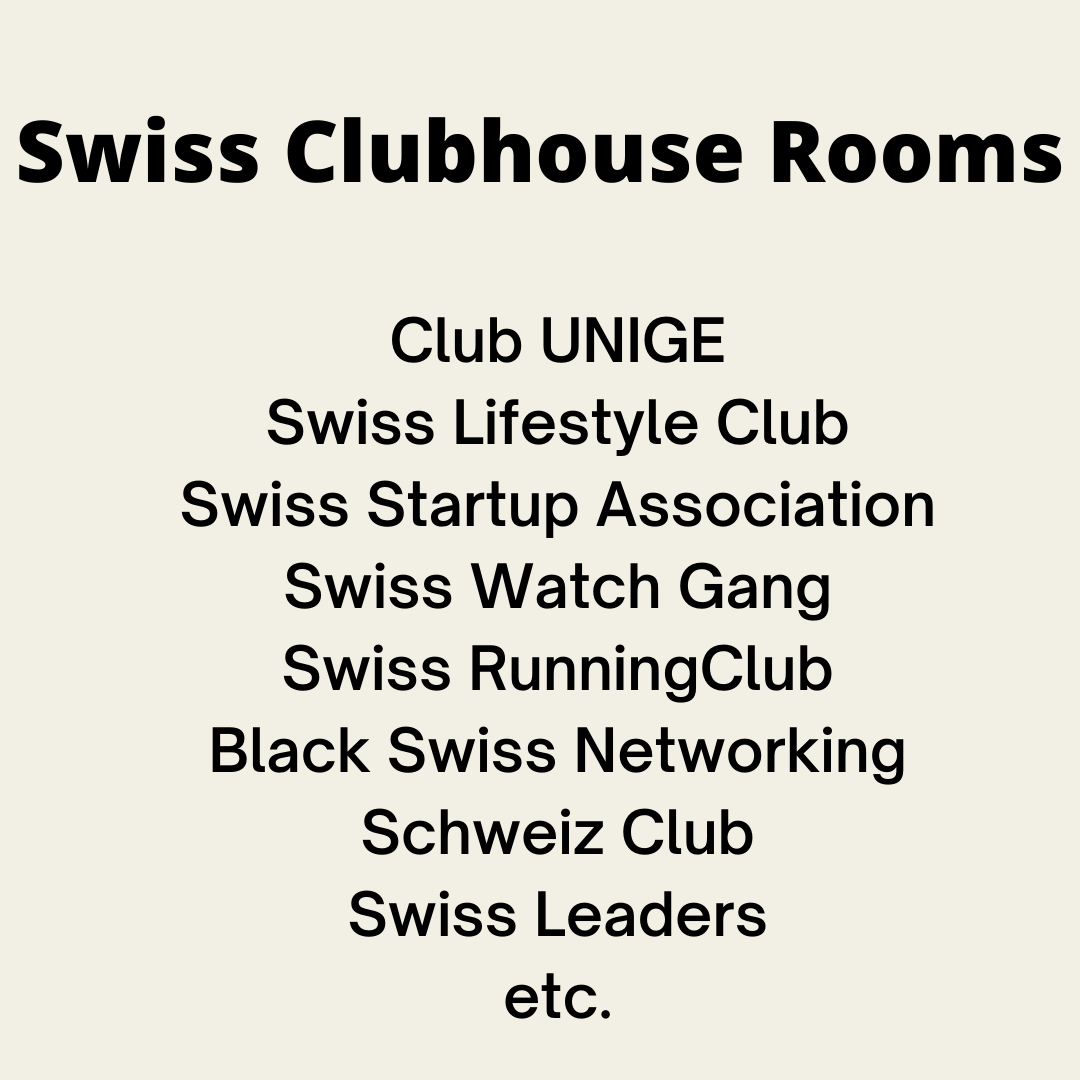 We have a new player in the social media ecosystem, and it's Clubhouse.
We have a new player in the social media ecosystem, and it's Clubhouse.
The new audio app was launched in April 2020 at the beginning of COVID-19 but its popularity explosion began in early 2021.
Clubhouse has 10 million weekly active users, up from 600,000 in December 2020, and a valuation of $1 billion US.
However, Clubhouse's biggest challenge is to create real added value before the competition catches up. Twitter has already replicated the model with its audio spaces, and as usual, Facebook won’t take long to do the same.
Walkthrough to Clubhouse
To access Clubhouse, you need to do two things:
- download the Clubhouse app from the Apple store (sorry to all others, but surely the app for Android will arrive soon),
- then, receive an invitation from another user.
For many, Clubhouse is a great experience. The lack of functionalities actually means that it is not intimidating. Just create your profile, select the people you want to follow, and select topics you are interested in. The best way to describe this app is that it is like entering a bar; you get to meet people by joining a room, listen, request permission to participate, and have a little conversation.
App functionalities
The interface is easy to use. You have an envelope icon where you will get your invitations. The app also has a calendar for upcoming events and sends you notifications. Also, there is a search option to look for your friends, subjects, or favorite celebrity.
You are free to join any public room. If you want to participate in a conversation you only have to press the hand icon to request permission. If your request is accepted you will be part of the room moderators. To leave the room, you only need to press the 'leave quietly' option.
Start a conversation
To create a room, simply press the button “Start a room.” You will receive three options:
- configure an open room where everybody is invited,
- the social option is a room for people you follow,

- last but not least is the closed option, where you can choose the people you want to invite.
App rituals
Shortly after Clubhouse's launch, people begin creating their own systems to overcome some of the app's technical limitations. For example, when a moderator wants to propose a new topic in a room, he uses the term reset the room.
Another example is pull to refresh. Here, when a room's audience wants to talk about something new, they replace their image profile to let the moderator know.
Definitely, the app's ease of use and the audio format establishes a sense of a close relationship with people. Clubhouse reminds me of the early days of Twitter (before the community managers took over control) and that great feeling you got when you could send a message directly to your favorite rock star
Moderation and privacy
One of the biggest challenges for Clubhouse - and audio format in general - will be content moderation. Since the appearance of Facebook, content moderation is one of the biggest concerns in the social media industry.
For instance,
- What are the legal implications of my opinions and conversations on this audio platform? Could these opinions affect my personal reputation in the future?
- Are we really free to express our thoughts without consequence?
On the other hand, another interesting subject will be privacy policy. What would happen when recording functionality is available? If we don’t accept the terms and conditions will we be able to use the app?
Audio is the future
One of the biggest advantages of digitalization is that everything tends to be simplified, and voice audio is the best example of this.
Although the audio format is not exclusive to the digital age, it is gaining popularity once again in the digital era.
A couple of years ago the marketing industry was getting excited about virtual audio assist devices such as Google Nest Hub and Alexa. Podcasts are still growing in popularity. Clubhouse is the latest example of this audio trend.
The greatest advantage of these new audio trends is, like radio, its non-intrusive nature, in that you can also listen to people while you are doing other things.
Clubhouse's Great Challenge
We all agree that audio is the next revolution in the digital era. Clubhouse is at the right place at the right time to take advantage of this trend. However, the real challenge for Clubhouse is to forge their own personality, rapidly attract more users and devise a long-term sustainable business model.
Otherwise, if Clubhouse considers its technical functionalities as its biggest strength there is a large risk that older platforms will replicate the model. For example, there is already Spaces, Twitter’s own version of Clubhouse, and Facebook is reportedly also working on its own version.
The time is now
Download the Clubhouse app and get the invitation. Let’s enjoy and participate actively in this audio format revolution using Clubhouse, join a room, and start a conversation. You will be amazed by all the great opportunities and interesting people you can meet on this platform.
In the meantime, I will leave this room quietly.
Further reading:
Social Media for Changemakers by Ashleigh (Anderfuhren) Armstrong
7 social media channels for small companies: 1 for each day of the week by
Sources:
Clubhouse


 We have a new player in the social media ecosystem, and it's Clubhouse.
We have a new player in the social media ecosystem, and it's Clubhouse.


